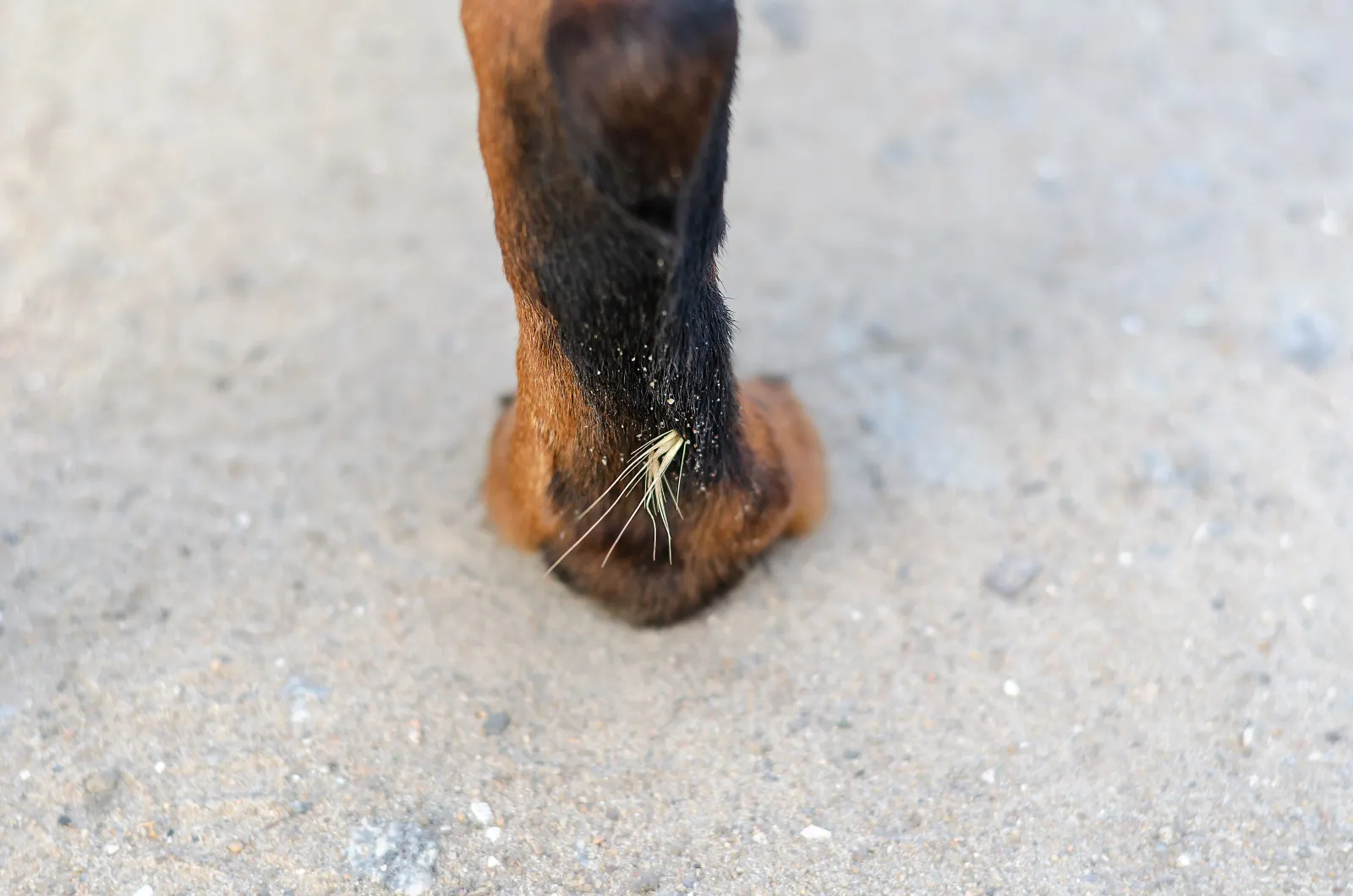How to Tell if Your Dog Has a Foxtail in Their Paw
Every dog owner knows that our furry companions can get into various situations. One common and potentially dangerous encounter for dogs is with foxtail seeds. These seemingly harmless seeds can cause significant discomfort and health issues for your four-legged friend, especially if they become embedded in sensitive areas, such as the paw. Discover how to tell if your dog has a foxtail in its paw, what to do if you suspect it has come into contact with these troublesome seeds, and other potential trouble spots like a swollen dog paw, a swollen bump on the dog's nose, and when a dogs ear swollen.

The Perils of Foxtail Seeds
Foxtail seeds are barbed grass awns found in various grasses and weeds. They are notorious for their ability to easily attach to fur, skin, and clothing, making them a common nuisance for dogs that love to explore the outdoors. These sharp seeds can burrow into a dog's skin or paw, leading to many problems.
Signs Your Dog May Have a Foxtail in Their Paw
- Limping or Favoring a Paw: If your dog is suddenly limping or avoiding putting weight on one of their paws, it could be a sign that they have a foxtail seed lodged in their paw.
- Excessive Paw Licking: Dogs are known to groom themselves, but if you notice your dog obsessively licking one paw, it indicates that something might be bothering them.
- Swelling and Redness: A swollen dog paw with redness and tenderness is a sign that there may be a foreign object, like a foxtail seed, irritating.
- Persistent Paw Chewing: If your dog is constantly chewing at one of their paws, they may be trying to alleviate the discomfort caused by a foxtail seed.
- Visible Seed or Bump: You might sometimes see the foxtail seed or a swollen bump on the dog's nose if the seed has migrated to that area.
- Discharge or Pus: An infected area with discharge or pus strongly indicates a problem, as foxtail seeds can introduce bacteria into the affected area.
What to Do If You Suspect a Foxtail in Your Dog's Paw
If you suspect your dog has a foxtail seed in their paw, acting promptly is essential. Here's what you should do:
- Examine the Paw: Gently inspect your dog's paw for any visible signs of a foxtail seed. Look for any open sores, redness, or swelling.
- Wash the Paw: Clean the affected paw with warm, soapy water to help prevent infection.
- Avoid Probing: Do not attempt to remove the foxtail seed yourself, as this can push it deeper into the skin. Instead, contact your veterinarian immediately.
- Veterinary Visit**: Schedule an appointment with your vet to have the foxtail seed safely removed. They may use sedation to ensure your dog remains still during the procedure.
- Antibiotics: If an infection is present, your vet may prescribe antibiotics to prevent the spread of infection.
Preventing Foxtail Encounters
Preventing foxtail encounters is the best approach. Here are some tips to help keep your dog safe:
- Avoid High-Risk Areas: Clear areas with tall, dry grasses and weeds, as these are prime foxtail seed habitats.
- Keep Your Dog's Fur Trimmed: Regular grooming can help reduce the chances of foxtail seeds attaching to your dog's fur.
- Check Your Dog After Outdoor Activities: After outdoor play or walks, examine your dog's paws, ears, nose, and coat for foxtail seeds.
When a Dog's Ear Is Swollen
Foxtail seeds are notorious for causing trouble in dogs' ears. If your dog's ear is swollen, it could be due to a foxtail seed. Other signs of ear trouble include head shaking, ear scratching, and sensitivity when the ear is touched. If you suspect a foxtail seed in your dog's ear, consult your vet immediately. Prompt removal is essential to prevent infection and damage to the ear canal. Regular pet exams are crucial for early detection and prevention of such issues, as your vet can thoroughly check your dog's ears and overall health during these visits.
Foxtail seeds can significantly threaten your dog's health and comfort, especially when lodged in sensitive areas like the paw, ear, or nose. Knowing the signs of a foxtail seed encounter, such as a swollen dog paw, swollen bump on a dog's nose, or a dog's ear swollen, is essential for quick and effective intervention. If you suspect your dog has encountered foxtail seeds, do not hesitate to contact your veterinarian for safe removal and treatment. Additionally, taking preventive measures can help reduce the risk of these pesky seeds causing problems for your beloved furry companion. If you need help, contact Forever Vets today.


